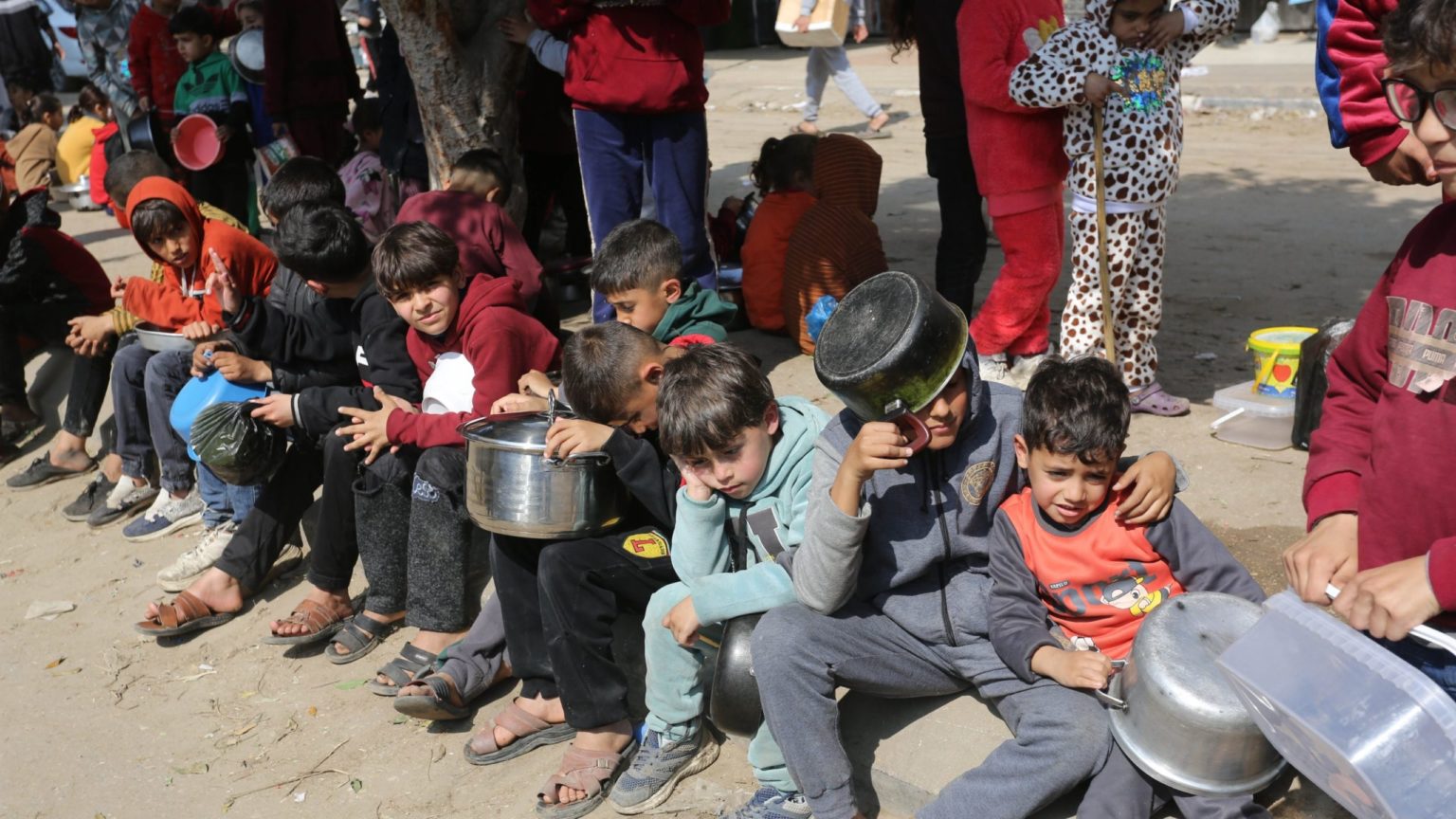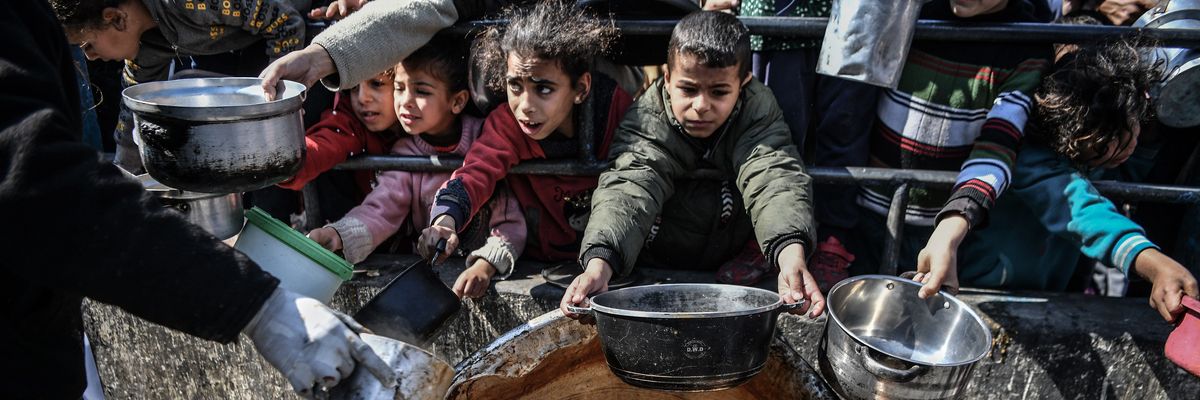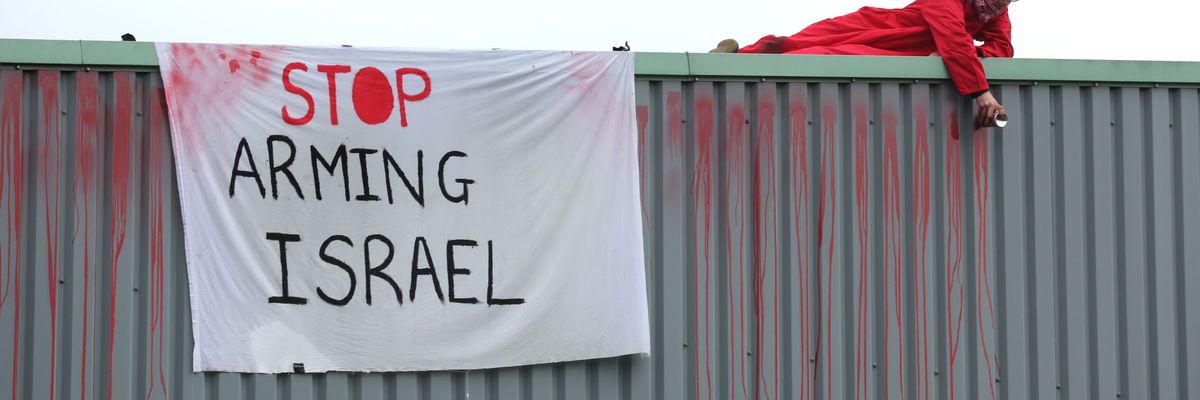Israel’s blocking of aid to Gaza is a weapon in its brutal war against Palestinians
Original article by Abdul Rahman and Ana Vračar republished from peoples dispatch under a Creative Commons Attribution-ShareAlike 4.0 (CC BY-SA) license.

Israel’s deliberate blocking of humanitarian aid to Gaza has emerged as key weapon against the people of the territory. More than 20 Palestinians have reportedly been killed due to starvation in the last few weeks and numbers are expected to explode in the coming days.
Though Israel denies it has any such policy, almost all UN agencies working to provide aid on the ground in Gaza, as well as several other groups, have termed the deliberate blocking of aid as the most important reason for an imminent famine in the besieged Palestinian territory.
Research conducted by organizations such as Refugees International show that, “Israeli conduct has consistently impeded aid operations within Gaza, blocked legitimate relief operations, and resisted implementing measures that would genuinely enhance the flow of humanitarian aid in Gaza.”
By denying adequate aid to Gaza, Israel has been in violation of the interim order passed by the International Court of Justice (ICJ) on January 26 while hearing the genocide petition filed by South Africa. The ICJ had asked Israel to facilitate “urgently needed basic services and humanitarian assistance to address the adverse conditions of life.”
In its submission to the court in February, Israel claimed it had complied with the ruling. However, UN data shows that the actual number of trucks with aid reaching Gaza decreased by half in February in comparison to the previous month. International organizations still describe experiences where the Israeli Occupying Forces (IOF) block their entry into Gaza, especially North Gaza, after being made to wait for hours on end.
According to Philippe Lazzarini, Commissioner General of UNRWA, in February, on an average just 98 trucks entered Gaza in comparison to around 200 trucks a day in January. Before October 7, Israel used to allow around 500 trucks a day to the besieged territory for a population of over 2.3 million.
Israel’s denial of adequate aid to Gaza also violates the UN Security Council resolution adopted in December which talks about greater access to humanitarian aid to Palestinians in Gaza.
The US, which was the primary mover of the UN security council resolution, recently airdropped aid to Gaza. While delivering his State of the Union address on March 7, President Joe Biden also talked about opening a temporary port in Gaza to deliver faster aid. Both the moves confirm the claims that there is not enough aid reaching Gaza at the moment, despite Israeli claims.
However, the US act is widely seen as a face-saving exercise given the Biden administration’s reluctance to press Israel for a permanent ceasefire in Gaza and its supply of arms and ammunition which is used by Israel to bomb Palestinians.
The Biden administration has failed to make Israel comply with its own National Security Memorandum (NSM 20) as well. It requires that countries seeking security aid from the US make arrangements for adequate humanitarian assistance.
Medea Benjamin of CODEPINK highlighted on her page on X that Biden says “Israel must allow more aid into Gaza and protect civilians. But it doesn’t. And Biden keeps sending them more weapons.”
Meanwhile “after five months of war, Palestinians are struggling to find adequate food, water, shelter and basic medicine. Famine level hunger is already widespread and worsening” in Gaza, Refugees International’s report says. The lack of adequate food has significant health implications for children in Gaza who have been the primary victims of Israel’s war since October 7.
Israel weaponized starvation against Palestinians
Israel has killed over ten thousand children in its bombings and ground offensives in Gaza since October 7. In addition to that, the health effects of Israel’s blockade on aid delivery are worsening by the day.
According to the World Health Organization (WHO), 1 in 6 children under 2 years of age in Gaza are acutely malnourished. The combination of food shortages, lack of clean water, and inadequate healthcare provision is having devastating effects, particularly on young children and mothers.
Many women are facing extreme difficulties in initiating and continuing breastfeeding due to their own nutritional status and stress. “People are hungry, exhausted, and traumatized,” said Adele Khodr, Regional Director of UNICEF’s Middle East and North Africa office.
The food shortage in the north is so severe that health workers report 95% of female patients are suffering from anemia. “There have been many operations performed, such as cesarean sections, to remove fetuses, [which] died of malnutrition among women,” Mohammed Salha, director of Al-Awda Hospital, told ActionAid.
Pediatricians at Kamal Adwan Hospital have reported not having the resources to treat more than half the children admitted to the hospital for malnutrition, as there is no food or medical supplement the staff can give them. “The most we can do for them is give them a saline solution or sugar solution,” physician Imad Dardonah told UN teams visiting the institution.
Israeli obstacles to aid delivery also mean that there is not enough infant formula or diapers. On the rare occasions when these essential supplies are found, their cost puts them out of reach for most of the population in Gaza.
A box of diapers in northern Gaza now costs around ILS 200 (USD 55), while monthly income before October 7, 2023, was reported around ILS 1,200 (USD 343)— not even enough to cover a newborn’s monthly supply during her first month of life, let alone food on top of that.
Restrictions are also being applied to the number of international medical teams allowed into Gaza and to field hospitals, which would allow for a partial expansion of much-needed health service capacities.
The siege is causing a devastating paradox: at the same time, there are too few health workers to respond to the needs of the population and those who have been working in Gaza’s healthcare system since October; and there are too many health workers in comparison to the operational surgery capacities—the only remaining functional operation rooms are located at the European Hospital in southern Gaza, according to surgeon Ghassan Abu Sittah.
Some countries have attempted to circumvent Israel’s aid blockade by airdropping supplies, but the amounts reaching the population in Gaza this way are nowhere near sufficient. To adequately stock hospitals and health centers, several international agencies have warned, it is paramount to ensure unimpeded passage for truck convoys carrying a wide range of supplies, not just a specific type of food or sanitary bandages.
When it comes to aid delivery, the UN humanitarian coordinator for the occupied Palestinian territories, James McGoldrick, said, “There is no alternative to food trucks, to road transports.”
Original article by Abdul Rahman and Ana Vračar republished from peoples dispatch under a Creative Commons Attribution-ShareAlike 4.0 (CC BY-SA) license.



